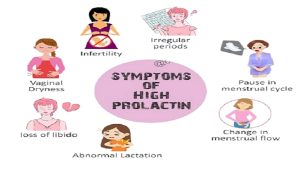AComplete Guide to Medical Transportation Management
4 min read
Medical-Transportation-Management
Introduction
Medical transportation management (MTM) is a critical component of healthcare, ensuring that patients have access to necessary medical services and appointments. Efficient MTM can significantly improve patient outcomes by reducing missed appointments and ensuring timely care. This article explores various aspects of medical transportation management, its importance, and practical tips for optimizing these services.
Overview of Medical Transportation Management
Definition and Importance
Medical transportation management (MTM) involves the planning, coordination, and oversight of transportation services for patients who require medical care. MTM ensures that patients, especially those with chronic conditions or mobility issues, can access healthcare facilities and services in a timely and safe manner.
Historical Development
The concept of MTM has evolved over the years, with early models focusing primarily on emergency transportation. Over time, the need for non-emergency medical transportation (NEMT) grew, leading to the development of comprehensive MTM systems that address various patient needs.
Types of Medical Transportation Services
Non-Emergency Medical Transportation (NEMT)
NEMT services provide transportation for patients who do not require immediate medical attention but need assistance traveling to medical appointments, therapies, or treatments. These services are crucial for patients with limited mobility or those who live in areas with inadequate public transportation.
Emergency Medical Transportation (EMT)
EMT services are designed for patients who require immediate medical attention. These include ambulance services equipped with medical personnel and equipment to provide critical care en route to healthcare facilities.
Specialized Transportation Services
Specialized transportation services cater to patients with unique needs, such as those requiring wheelchair-accessible vehicles or transport for dialysis and chemotherapy patients.
Key Components of Medical Transportation Management
Coordination and Scheduling
Effective MTM involves meticulous coordination and scheduling to ensure that patients are transported efficiently and on time. This includes managing driver schedules, vehicle availability, and patient appointments.
Technology and Software Solutions
Advanced technology and software solutions play a pivotal role in MTM. These tools facilitate real-time tracking, route optimization, and automated scheduling, enhancing the overall efficiency and reliability of transportation services.
Quality Assurance and Monitoring
Quality assurance and monitoring are essential for maintaining high standards in MTM. This involves regular assessments of service quality, patient satisfaction, and compliance with regulatory requirements.
Benefits of Effective Medical Transportation Management
Improved Patient Outcomes
Effective MTM ensures timely access to medical care, reducing the risk of missed appointments and delays in treatment. This leads to better health outcomes and improved patient satisfaction.
Cost Efficiency
By optimizing transportation routes and schedules, MTM can significantly reduce operational costs. This cost efficiency benefits both healthcare providers and patients, making medical transportation more affordable.
Enhanced Access to Healthcare
MTM enhances access to healthcare services, particularly for underserved populations. It ensures that patients, regardless of their location or mobility limitations, can receive the medical care they need.
Challenges in Medical Transportation Management
Regulatory and Compliance Issues
MTM must navigate a complex landscape of regulations and compliance requirements, which can vary by region and type of service. Ensuring adherence to these regulations is critical for the safety and legality of transportation services.
Coordination and Communication Barriers
Effective coordination and communication between patients, healthcare providers, and transportation services are essential but can be challenging. Miscommunication or lack of coordination can lead to delays and service disruptions.
Funding and Resource Limitations
Securing adequate funding and resources is a significant challenge for many MTM programs. Limited financial and human resources can impact the quality and availability of transportation services.
Best Practices for Medical Transportation Management
Leveraging Technology
Utilizing advanced technology, such as GPS tracking, automated scheduling, and mobile apps, can greatly enhance the efficiency and reliability of MTM services.
Staff Training and Development
Investing in the training and development of staff ensures that drivers and coordinators are well-equipped to handle the specific needs of medical transportation, enhancing service quality and patient safety.
Patient-Centered Approaches
Adopting a patient-centered approach involves understanding and addressing the unique needs and preferences of each patient. This improves the overall experience and satisfaction with MTM services.
Future Trends in Medical Transportation Management
Telehealth Integration
The integration of telehealth services with MTM is an emerging trend. Telehealth can reduce the need for in-person visits, complementing transportation services and improving patient access to care.
Autonomous Vehicles
The development of autonomous vehicles holds promise for the future of MTM. These vehicles can provide safe and reliable transportation for patients, potentially reducing costs and increasing efficiency.
Data-Driven Decision Making
Data-driven decision making involves using analytics and data insights to optimize MTM operations. This includes route planning, demand forecasting, and performance monitoring.
Case Studies and Success Stories
Community-Based Programs
Community-based MTM programs have successfully improved access to healthcare for underserved populations, demonstrating the impact of well-coordinated transportation services.
Innovative Partnerships
Partnerships between healthcare providers, transportation companies, and technology firms have led to innovative solutions in MTM, enhancing service quality and efficiency.
Technological Innovations
Technological innovations, such as mobile apps and real-time tracking systems, have transformed MTM, providing greater convenience and reliability for patients and providers alike.
Frequently Asked Questions (FAQs)
What is medical transportation management?
Medical transportation management (MTM) involves the planning, coordination, and oversight of transportation services for patients who require medical care.
How does medical transportation management improve healthcare?
MTM improves healthcare by ensuring timely access to medical services, reducing missed appointments, and enhancing patient outcomes.
What are the challenges in medical transportation management?
Challenges in MTM include regulatory and compliance issues, coordination and communication barriers, and funding and resource limitations.




